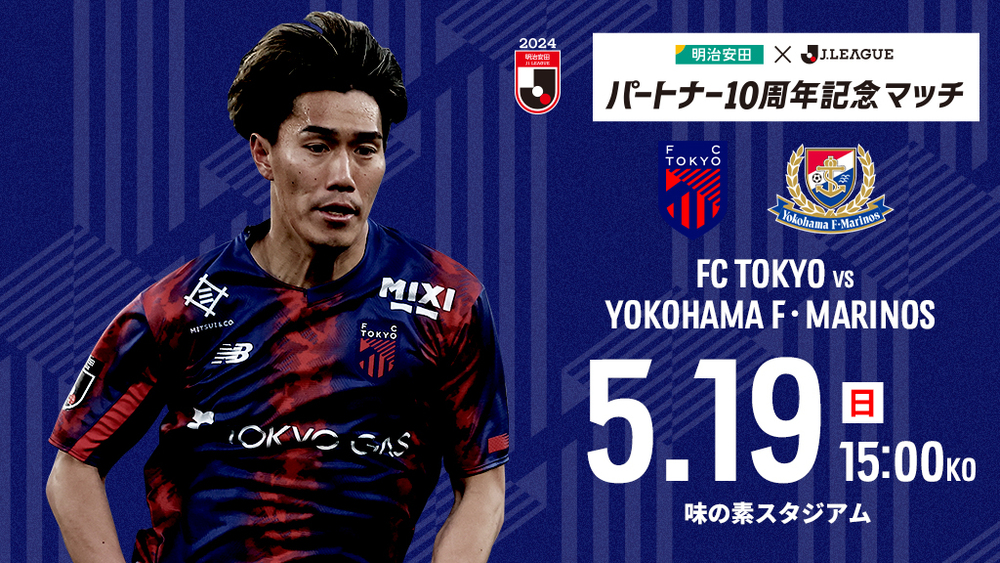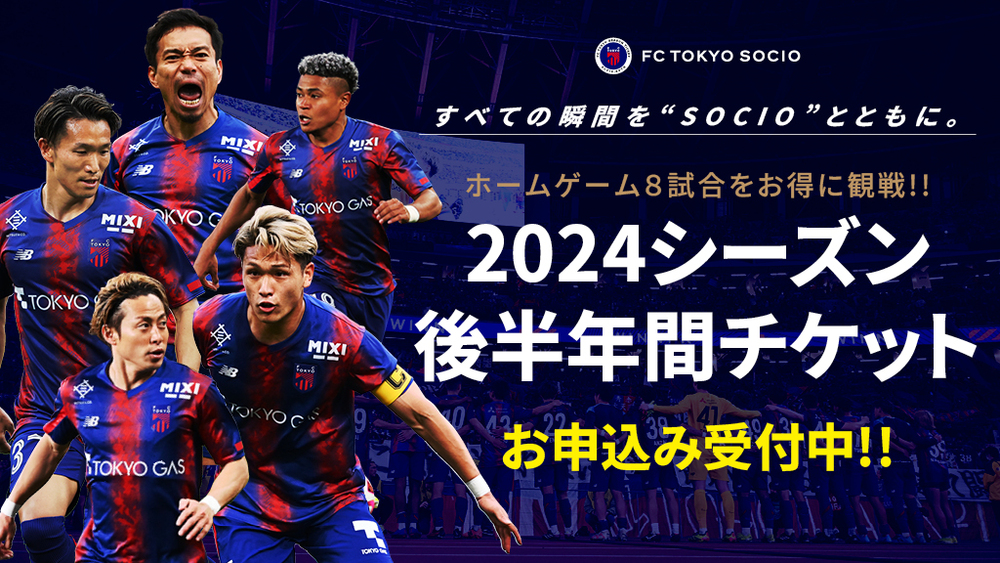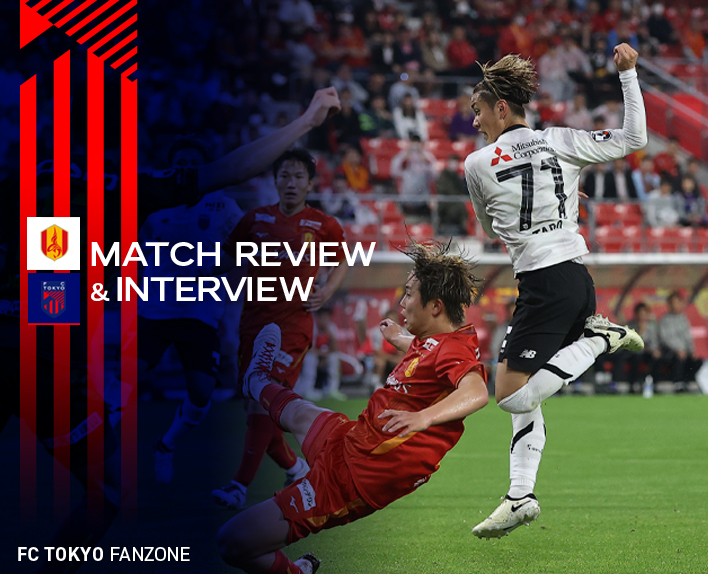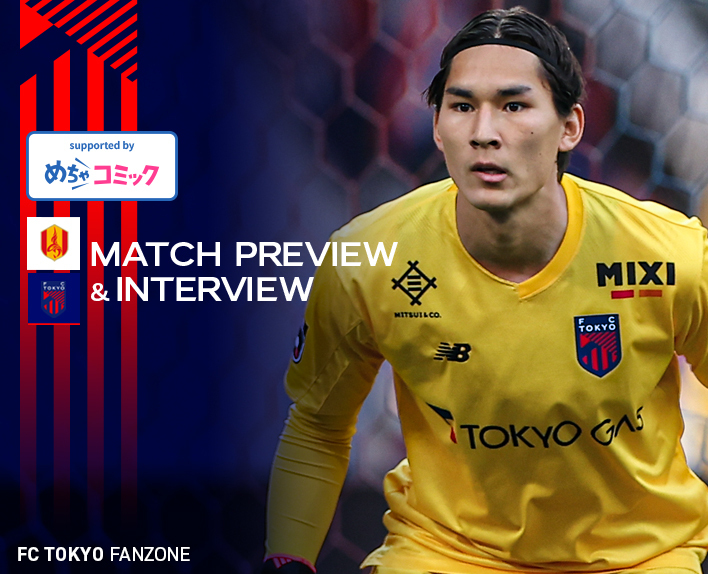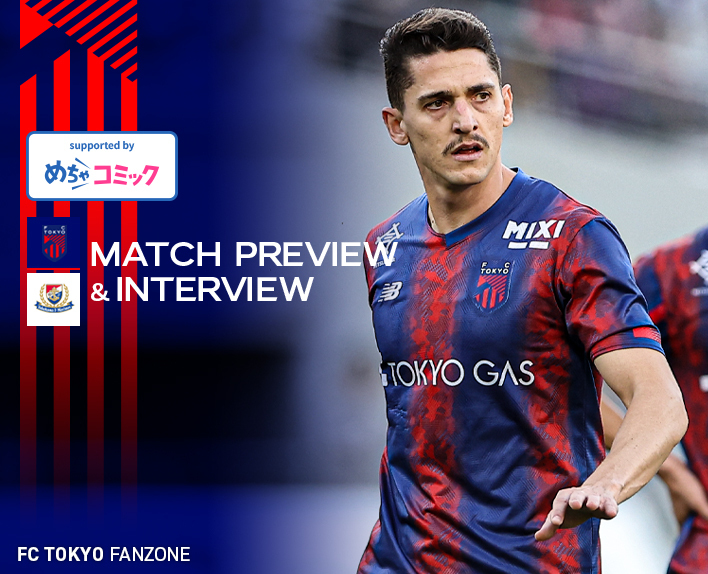Match Review
Away game against Nagoya Grampus. Although the winning streak in the league was stopped at 3 games with a draw in the previous match, it is important to maintain focus and aim for a solid result in this game.
The starting eleven saw three changes from the previous match against Kashiwa Reysol. Goalkeeper Taishi Brandon NOZAWA, who returned from the Japan U-23 national team, made his first start since the 7th round match against Kashima Antlers. Yasuki KIMOTO, who used to play for the opponent team, was chosen as the center back, and Kei KOIZUMI, who had just finished serving his suspension, was placed in the defensive midfield. In addition, Ryotaro ARAKI, who had been recovering from an injury sustained during the Japan U-23 national team match, returned and made it to the bench.
The congested schedule of three consecutive days is the same for the opponents as well. The match, which was scheduled to be held on May 15th, "J-League Day", kicked off at 19:03 in the pouring rain just before the start.
1st HALF - Unable to find an attacking player and concede a one-point lead
The first chance came in the 4th minute of the first half, when right-back Kosuke SHIRAI overlapped from the center and supplied a ground cross in the negative direction. Kota TAWARATSUMIDA aimed for it with his right foot, but unfortunately the ball went over the bar.
In the 8th minute of the first half, Diego OLIVEIRA, who received the ball on the front line, turned and faced forward, swinging his right foot from long range to attack the goal. Although it flew straight to the opponent's goalkeeper, he continued to show a proactive attitude from the start.
Tokyo started off with an aggressive attack, but Nagoya has been able to defend well with their compact 4-3-3 formation, making it difficult for Tokyo to find a way through the center.
The game continued with a back-and-forth attack and defense, but neither team was able to create a shooting opportunity. However, in the 30th minute of the first half, the game took an unexpected turn.
The opponent pressed as we attempted a difficult build-up from deep on the left side of our own half, resulting in Masato MORISHIGE being fouled in the penalty area and giving Nagoya a penalty kick. This was converted by Kasper JUNKER, making it the third consecutive game in which we conceded the opening goal.
Tokyo, which is trying to counterattack, is increasing the pressure from the front line. They are trying to penetrate the enemy's territory by connecting passes precisely.
In the first half additional time, a free kick from the right side of Nagoya was powerfully combined in the center and shook the net, but with the support of VAR, it was ruled offside, and the first half ended with a score of 0-1.
How will we break down Nagoya, who will come aiming for a counter while tightening the center and creating a "red wall"? The strategy was carried over to the second half.
2ndHALF - Taro's comeback goal was not enough for a counterattack.
Tokyo, trying to break through Nagoya's solid defense. In the 5th minute of the second half, Diego Taba takes a shot with his left foot after cutting back. In the following 6th minute, Teruhito Nakagawa and Shuto Hakuai both attempt to score from Tawamurezumiya Tada's cross from the left side, but they are unable to shake the goal net.
As they searched for attacking options by incorporating angled passes, dropping passes from vertical wedge passes, and side changes, the bench made a move in the 16th minute of the second half. They simultaneously brought in Kuryu Matsuki, who had been active in the U-23 Japan national team, and Araki to break through.
However, it was Nagoya who scored the next goal. In the 21st minute of the second half, Kasper JUNKER, who received a long ball, moved to the left and advanced to the front line. After receiving the ball, Izumi passed it to the center, and JUNKER, who was running towards the front line, took a one-touch shot with his left foot, making it 0-2.
In the 26th minute of the second half, Kasper JUNKER scored a header from the near side after Nagoya's left corner kick was crossed in from the right, going over the goalkeeper's head and into the goal. This allowed for a hat-trick.
Tokyo, who is aiming for a comeback, brought in Yuto NAGATOMO and Jája Silva in the 27th minute of the second half. This player substitution led to a counterattack goal.
In the 33rd minute of the second half, Takahiro KO connected with a throw-in from the right side and made a dash towards the open space. He then received a perfect through pass from Takahiro KO and crossed it while falling down, finding Araki in the center. "Taro", who had just returned to the pitch, quickly produced a result and scored a goal that encouraged the team.
In the 41st minute of the second half, Matsuki player picked up a loose ball that was crushed by Jaja player in a high position on the left side and dribbled. The opponent's sliding block trying to stop the ground early cross was heading towards the goal, but it was cleared just before an own goal, unfortunately not resulting in a score.
They continue to launch fierce attacks even during the 4 minutes of additional time. They created close chances with set plays, and players like Araki and Matsuki relentlessly attacked the Nagoya goal with middle shots and decisive shots, but they were unable to change the score.
Despite the good news of player Sho Araki's comeback goal, there was a disappointing loss at away game Nagoya. It was their first loss in 5 league matches.
MATCH DETAILS
<FC Tokyo>
STARTING Ⅺ
GK Taishi Brandon NOZAWA
DF Kosuke SHIRAI/Masato MORISHIGE/Yasuki KIMOTO/Kashif BANGNAGANDE
MF Takahiro KO (40th minute of the second half: Riki HARAKAWA)/Kei KOIZUMI/Teruhito NAKAGAWA (16th minute of the second half: Ryotaro ARAKI)
FW Diego OLIVEIRA (16th minute of the second half: Kuryu MATSUKI)/Kota TAWARATSUMIDA (27th minute of the second half: Jája Silva)/Soma ANZAI (27th minute of the second half: Yuto NAGATOMO)
SUBS
GK Tsuyoshi KODAMA
DF Henrique TREVISAN
GOAL
33 minutes into the second half: Ryotaro ARAKI
Nagoya Grampus
STARTING Ⅺ
GK LANGERAK
DF Akinari KAWAZURA/Kennedyegbus MIKUNI/Haruki YOSHIDA
MF Masahito ONO (23rd minute of the second half: Ken MASUI)/Keiya SHIIHASHI/Sho INAGAKI/Tsukasa MORISHIMA (37th minute of the second half: Takuji YONEMOTO)/Takuya UCHIDA (23rd minute of the second half: Katsuhiro NAKAYAMA)
FW Kasper JUNKER (37th minute of the second half: PATRIC)/Kensuke NAGAI (13th minute of the second half: Ryuji IZUMI)
SUBS
GK Yohei TAKEDA
DF Hachanre
GOAL
First Half 33rd Minute: Kasper JUNKER / Second Half 21st Minute: Kasper JUNKER / Second Half 26th Minute: Kasper JUNKER
[Interview with Peter CKLAMOVSKI, Manager]
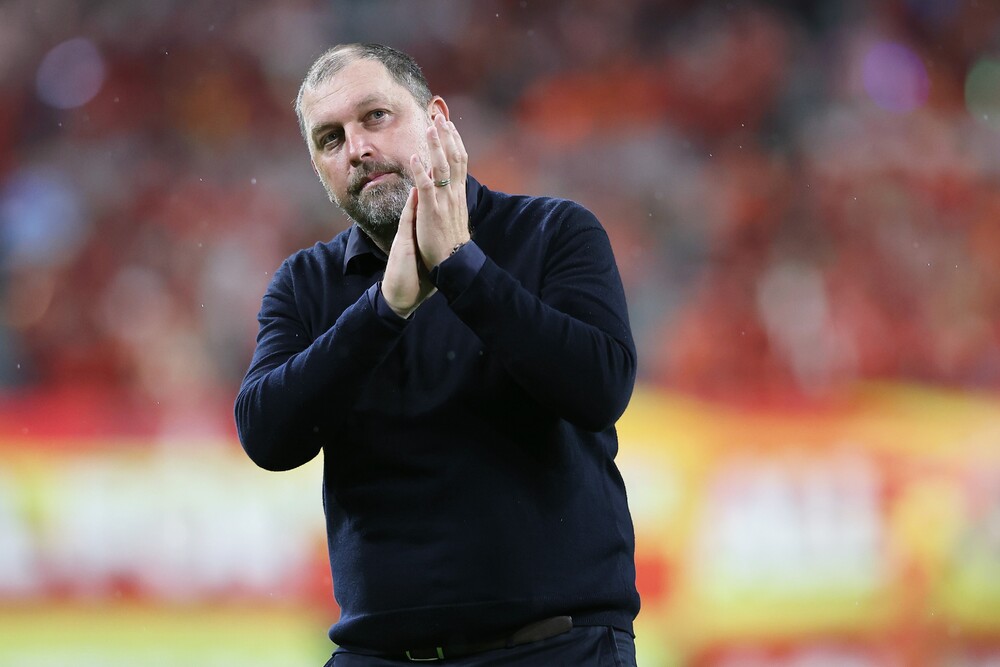
Q, please give us an overview of the match.
A,Unfortunately, it was a disappointing result. It was a game that we could have grabbed ourselves and I feel that we were not far from taking the victory, but there were moments where we made the game difficult for ourselves. I think the easy goals we conceded were painful. We felt that we could fight strongly towards the end of the game, but regarding today's match, I believe it was a game where we made it difficult for ourselves.
Q, The goal scoring scenes have always been able to show their usual strength, but on the other hand, the goal difference is increasing. What are your thoughts on how to improve this?
A, First of all, while analyzing the game thoroughly, we conceded a goal in the first half through a penalty kick. I don't think it was due to our defensive shape or composition, or any specific defensive rules. This is something that can happen in football. Regarding the second goal, I think there are areas we need to improve on and it became a decisive moment. We also had opportunities to score during that time and I felt that if we could convert them, we could turn the game around. However, we were unable to do so and Nagoya Grampus took advantage of our mistakes, making it difficult for ourselves.
The third goal was from a set piece. We need to improve in those areas and make sure we don't concede easily. However, I believe this group has the mentality to come back after conceding. Nevertheless, we need to improve in the areas where we concede easily and use that to our advantage. If we do that, we can become a difficult and tough opponent for our opponents to face and defeat.
In the end, we knew we could fight strongly and there were also good saves from goalkeeper LANGERAK. I think there were also clearances on the line. We feel the cost of conceding easily today in those areas. It was a tough lesson, but we want to learn from it, recover, and prepare for the next game.
[Player Interview]
<Ryotaro ARAKI>
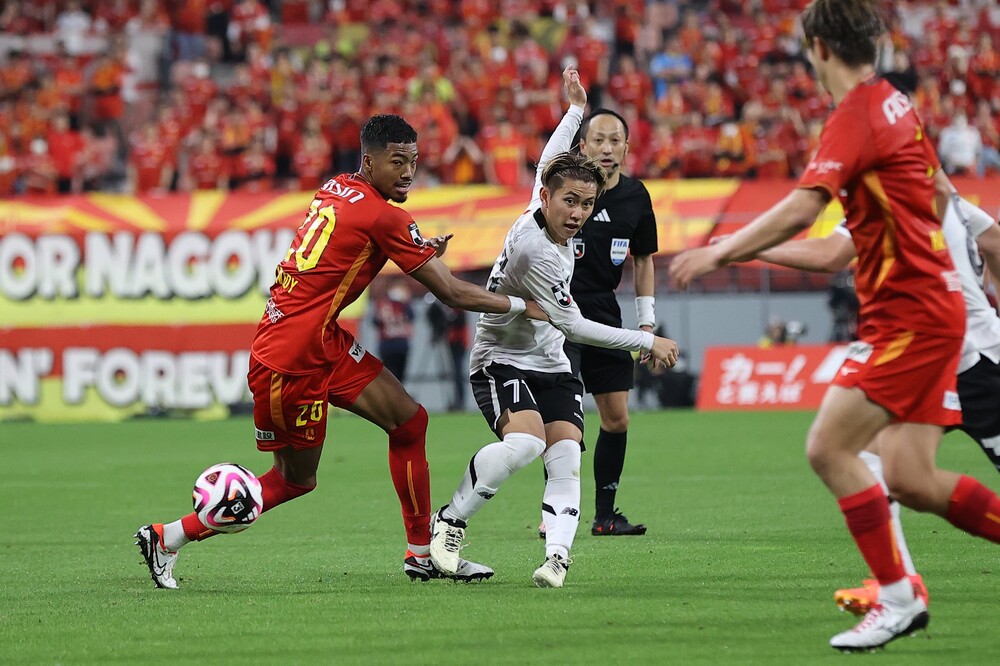
Q, this was my first appearance in Tokyo in a long time.
A, the aspect of not conceding goals has been a challenge for me since before I left the team for national team activities, and it is something that the team as a whole needs to improve. No matter how many goals we score, if we continue to concede, it becomes difficult to win, so I want to work on fixing it not just as a defensive player, but as a team.
Q: Please review the scoring scene.
At the timing when a through pass from Kosuke SHIRAI to Yuto NAGATOMO entered, I initially thought to make a near run, but the space was closed off so I adjusted my movement to anticipate the ball coming back. As the pass came as planned, I just calmly hit it to create an opportunity.
Q, Ryotaro ARAKI's ball gathering created attacking organization and fluidity.
A, being involved with the ball and building up attacks is my strength and specialty. I was thinking that I wanted to bring some changes to the pitch when I was watching from the bench because I was going to play. I was conscious of making plays that would change the flow of the game, and although we lost, I think I was able to fulfill my role to some extent.
<Kei KOIZUMI>
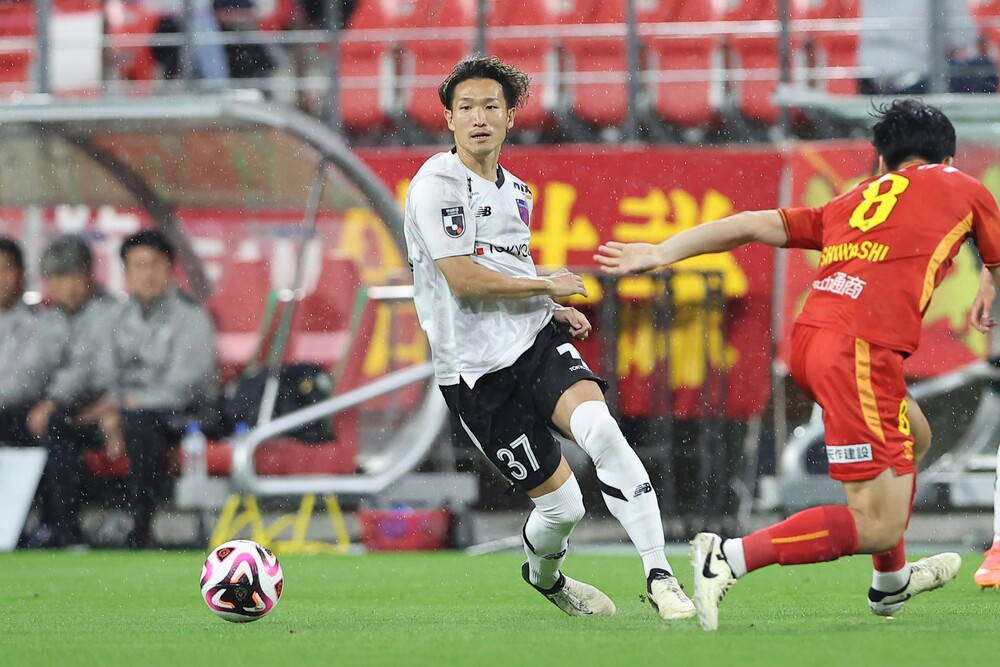
Q: please review the game.
A, The opponent also has a strong point in intensity, and it was clear from the beginning that they are a team that wins with counterattacks by winning in ball battles and picking up second balls. In order to avoid this kind of situation, we need to win in the intensity aspect more than the opponent. It's not about running or fighting, but about the battle aspect of "fighting" more than the opponent. Especially for players like me who are responsible for the central midfield, if we can pick up second balls and control the chaotic situations, I think we could have played at our own pace a little more. Also, we should improve as a team on how to break down the opponent when they start to sit back a little. It's not all negative, but there are some positive aspects as well.
Q, how do you see the factors that did not lead to points, even though the connecting parts and the parts that dominate the game have been expressed in the same way as the past few games?
A, In the end, you can't score a goal without shooting. I think it would have been better if I could have shown more of my timing for shooting and my last determination. I want to challenge that. However, it's not good to shoot in a hurry, so I want to be able to aim for a shot with good judgment and flexibility.
Q, there will be consecutive games. How will the team approach this?
A, the game is coming soon and there is no time to look down. No matter how much we talk, I think we have to do it on the pitch. I want to tighten up and do it again.
<Kashif BANGNAGANDE>
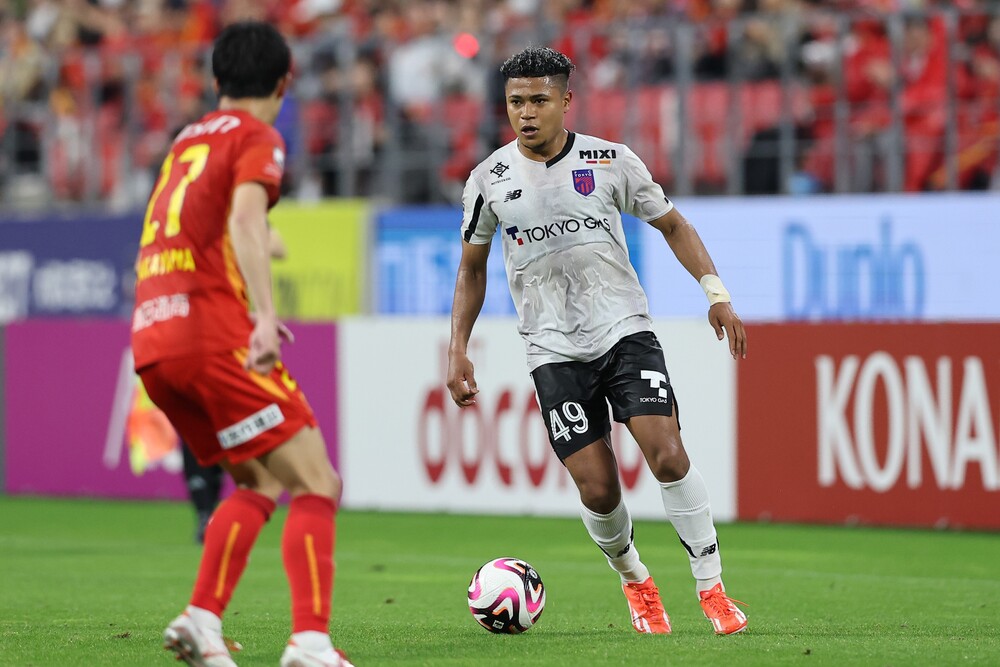
Q: please review the game.
A, in the first half we couldn't bring about a good development and ended up conceding in a bad way. I think the whole team was running, but the connection part didn't go well. In the end of the second half, we were able to play good soccer, so if we had been able to do that from an earlier time, I think we could have advanced the game in our favor like in the Kashiwa Reysol match. We have another game coming up soon, so we will switch our focus to that.
Q, there were many scenes where we were able to break through with a good combination in the side attack.
There were a few scenes where we were able to break through with combinations. However, in the first half, Tawaratsumida Kota was marked by two players and I was marked by one, so if we had supported Tawaratsumida when he received the ball and created more 1-on-1 scenes, I think we could have connected more in our attacks. That is something we need to work on in the future. There were also scenes where things went well, so we want to continue that kind of cooperation and make improvements on our challenges.
Q, in the first half, the opponent had particularly prepared for attacks from the left side.
A, I think we were doing too well before. When we were able to go all out, it was also a strong point for the team, so when countermeasures are taken, it becomes a challenge to see how we can make adjustments on the pitch. When things don't go well like in the first half, we need to communicate more on the pitch. Not just with Tawara Tsumita, but also with more players, we want to talk and improve our ability to use the left side effectively.
Q, there will be consecutive games. How will you improve the quality?
A, because there are many players with unique personalities, there are many attacking patterns depending on the players who are playing, which is a unique feature of this team. We must continue to focus on this aspect while also seeking results. In the second half, despite having chances, we were unable to finish them. If we can finish those chances, we can become a winning team, so we want to focus on that last part. We have back-to-back games, so we need to switch gears and continue what we have been doing well, while also addressing our weaknesses and preparing for the next game this weekend.

